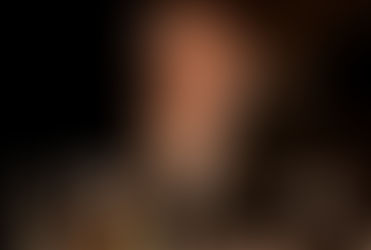The Tin Soldier
- Chris O'Rourke
- Jun 15, 2022
- 4 min read

Conor Linehan and Louis Lovett in The Tin Soldier. Image by Ros Kavanagh
****
Some artists develop signature styles. Louis Lovett is one such artist. Impeccably attired, displaying mannerisms with a high degree of affectation, Lovett often resembles a close relation of Morticia Addams. Or the founding member of a 1980s German synth group, whose quietist gaze suggests longings and menace. His plays with Theatre Lovett, fairytales for young and old, rich in real and imagined folklore, reek of German expressionism. Steeped in so much faux shadow and silhouettes you might forget what daylight looks like. But behind his words and images, and impressive vocal work, lies a silence, richly informed by immense concentration. Nothing onstage is left to chance. Evident again in The Tin Soldier. Moody, broody and magical, steeped in visual gorgeousness, Lovett's tale is filled with so much inner light it belies its own darkness.
As is often the case, reading the small print is crucial. Those expecting Hans Christian Anderson's The Tin Soldier best manage their expectations. Theatre Lovett's version, by Lovett and Nico Brown, is written after Anderson's version, and, more importantly, is about Anderson himself. If Anderson hid behind his characters in real life, The Tin Soldier drags some version of him into the spotlight. Like Oscar Wilde's coded sexual references peppered throughout his work, Anderson, it appears, was making confessions in his own tales for those who might hear his loneliness. Bisexual and terrified by it, and not a looker by any account, Anderson's sexuality was complex and purposely hidden throughout his life. At great personal cost.

Louis Lovett in The Tin Soldier. Image by Ros Kavanagh
All of which comes to the fore in Lovett's theatrically satisfying masterpiece. Which, despite the inclusion of composer Conor Linehan and dancer Kévin Coquelard, with additional support from Theo Cosgrove, Arthur Peregrine and Olesya Zdorovetska, is essentially a one man musical monologue. Even Coquelard's Jack-in the-box serves as a verbal and physical extension for Lovett, with Coquelard lip syncing like a demented ventriloquists dummy. Both Coquelard and Linehan foregrounding their own artistic identities by working in subservience to Lovett's artistic vision. Shaped with his long time collaborator, Muireann Ahern, who directs superbly.
Jamie Vartan's set, like a broken time tunnel, focuses attention on the action. Following a superb silhouetted entrance, Lovett regales us in dramatic verse, delivered with the ease and immediacy of prose. Litter becomes literature as Lovett narrates Anderson's tale of his early years trying to find work in Copenhagen. Of finding a patron. Of hiding in plain sight. Narrative details secondary to the experience Lovett creates in which past and present, sentiment and nostalgia marry in an almost holistic whole. What emerges is a study in loneliness. A man at odds with himself, fashioning stories of lost ducklings, injured mermaids, frayed collars and one legged tin soldiers to hint at greater pains. His cry; do you see me? Will you love me if you do? Moments that move the experience beyond words, shaping songs and music which prove deeply and memorably affecting.

Louis Lovett in The Tin Soldier. Image by Ros Kavanagh
Narratively, the greatest illusion is the illusion of economy. Which Lovett and Brown don't quite pull off. If verbal interplay shows hints of brilliance, and repositioning metaphors and motifs from Anderson's fairytales weaves an alluring spell, at times the verbiage gets dense and confused. Even Grinder, Disney and Frozen only serve to thicken the fog. Meanwhile, Lovett gets frequently, and deliciously, upstaged. Conor Linehan and his scrumptious score weave a sad, sentimental magic as Lovett's ugly ducking gets out of town. The scene stealing Coquelard proves simply phenomenal as the physical manifestation of Lovett's darker, tender sensibilities. But the real star of the night is Sarah Jane Shiels, whose perfectly timed, pin point lighting is a masterclass in what lights can do. It might seem way too early, given the Irish Times Theatre Awards were just last Sunday, and congratulations to all winners and nominees, but if Shiels is not nominated in next year awards there's simply no justice left in this world. Shiels takes her work to a whole other level, leaving you gobsmacked and spellbound. Without her, The Tin Soldier simply wouldn't work.
Despite talk of the magic of theatre, it's not an easy trick to pull off. Yet The Tin Soldier does it with style. Theatre Lovett style. Like a Bauhaus concept album launched at a Weimar cabaret, The Tin Soldier is a fusion of old and new in which Anderson and his fairytales are given a graphic novel overhaul for the Grinder and Tinder generation. Despite overplaying its hand, some singing struggling to be heard over the piano, and giving it a little too much in terms of sentimental cranking, The Tin Solider is a magical experience. Offering a candle in the dark to help light the way. Yes. We see you. You're not alone.
The Tin Soldier, by Louis Lovett and Nico Brown after Hans Christian Anderson, presented by The Gate Theatre and Theatre Lovett, runs at The Gate Theatre until July 2.
For more information, visit The Gate Theatre



















